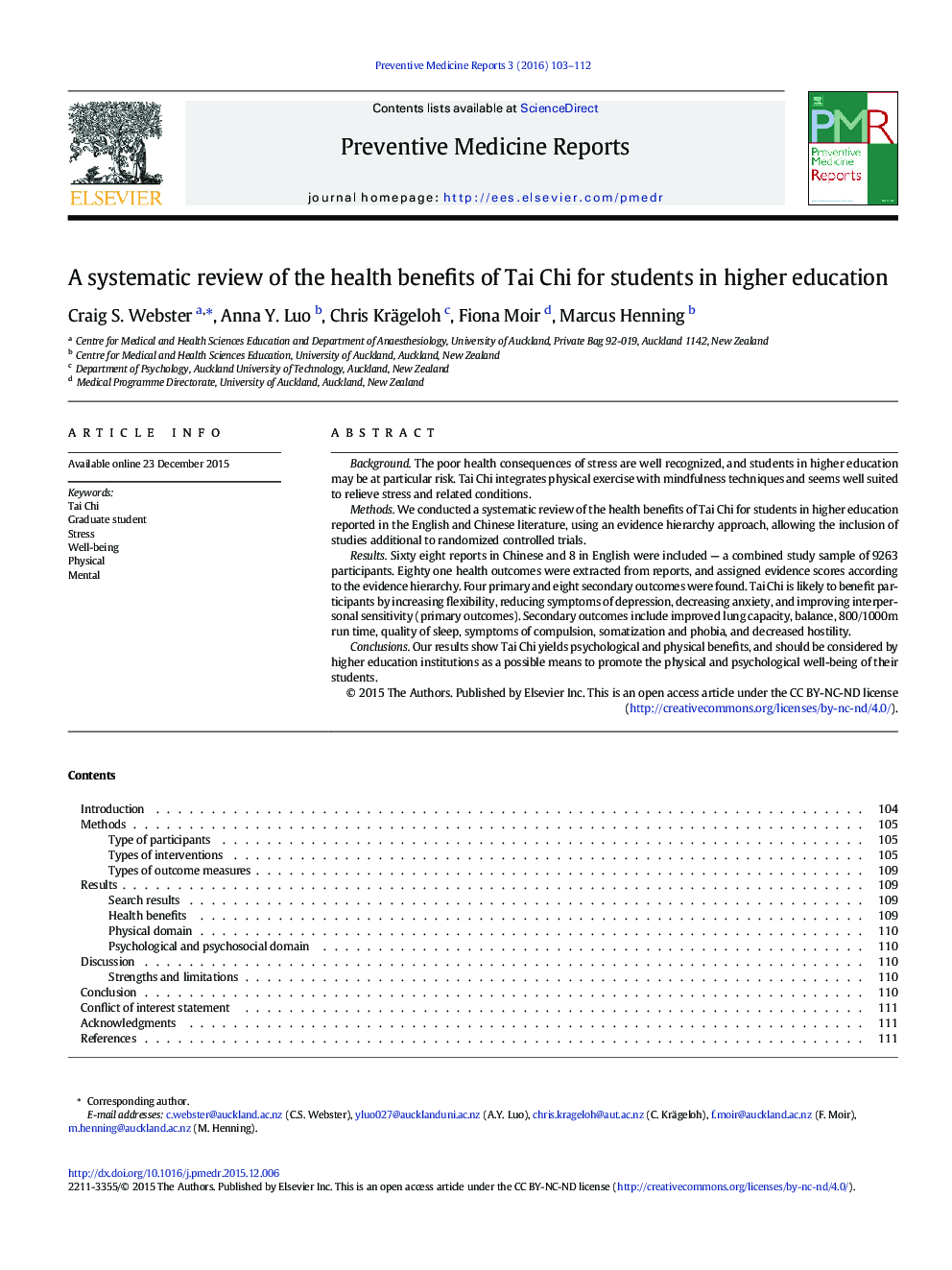| Article ID | Journal | Published Year | Pages | File Type |
|---|---|---|---|---|
| 4202317 | Preventive Medicine Reports | 2016 | 10 Pages |
•We reviewed the benefits of Tai Chi in 9263 tertiary students from 76 studies.•Tai Chi is likely to yield psychological and physical benefits for tertiary students.•Physical benefits include improved flexibility, lung capacity and balance.•Psychological benefits include reduced symptoms of depression and anxiety.•Education institutions should consider such benefits for the well-being of students.
BackgroundThe poor health consequences of stress are well recognized, and students in higher education may be at particular risk. Tai Chi integrates physical exercise with mindfulness techniques and seems well suited to relieve stress and related conditions.MethodsWe conducted a systematic review of the health benefits of Tai Chi for students in higher education reported in the English and Chinese literature, using an evidence hierarchy approach, allowing the inclusion of studies additional to randomized controlled trials.ResultsSixty eight reports in Chinese and 8 in English were included — a combined study sample of 9263 participants. Eighty one health outcomes were extracted from reports, and assigned evidence scores according to the evidence hierarchy. Four primary and eight secondary outcomes were found. Tai Chi is likely to benefit participants by increasing flexibility, reducing symptoms of depression, decreasing anxiety, and improving interpersonal sensitivity (primary outcomes). Secondary outcomes include improved lung capacity, balance, 800/1000m run time, quality of sleep, symptoms of compulsion, somatization and phobia, and decreased hostility.ConclusionsOur results show Tai Chi yields psychological and physical benefits, and should be considered by higher education institutions as a possible means to promote the physical and psychological well-being of their students.
